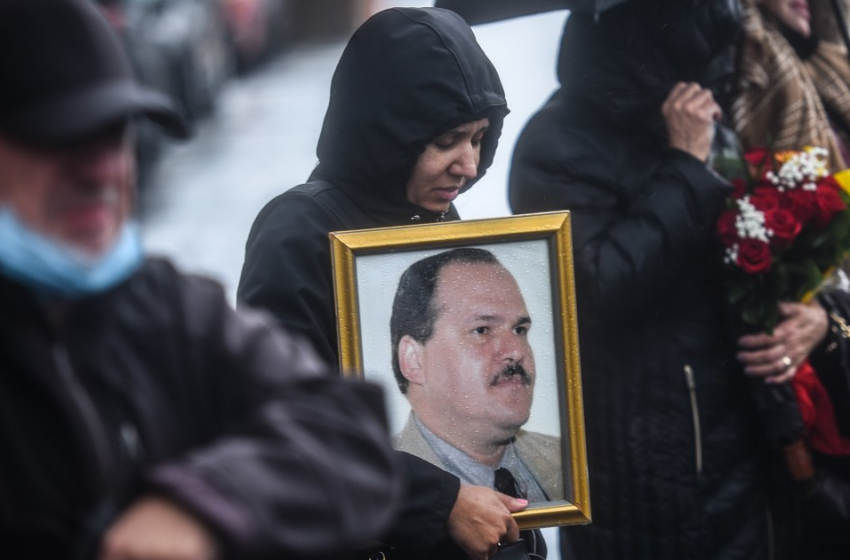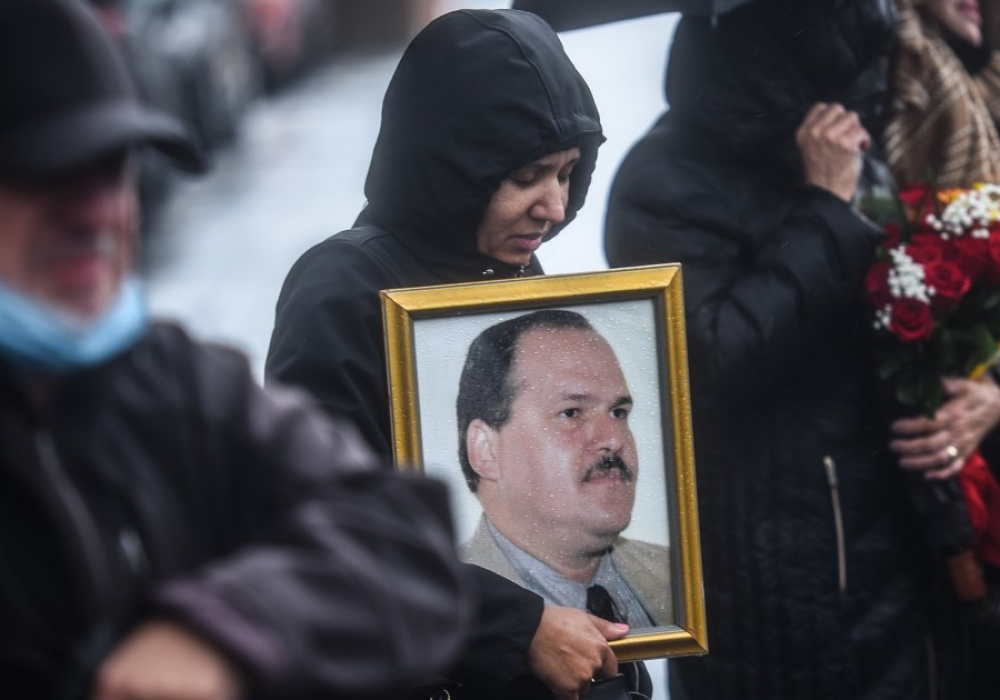Cid Wilson remembers the fear and disbelief.
Twenty years ago, the nation’s second-deadliest plane crash shook a terrified nation two months after the Sept. 11 attacks. But it really hit one group particularly hard: New York City’s growing Dominican American community.
On Nov. 12, 2001, American Airlines Flight 587 crashed in Queens, New York, shortly after takeoff. All 260 people aboard the flight bound for the Dominican Republic died, along with five people on the ground. About 90 percent of the passengers were of Dominican descent.
One of Wilson’s good friends, Félix Sánchez, was on the plane.
“We were waiting and waiting and waiting,” Wilson, 51, president and CEO of the Hispanic Association on Corporate Responsibility, told NBC News. He said he remembers gathering at Sanchez’s mother’s apartment, “just praying for any possibility that maybe he missed the flight or took another flight, which was not unusual, because there were many different flights during the day.”
Sánchez was 28 when he died. The up-and-coming financial adviser met Wilson after joining a professional group called Dominicans on Wall Street.
“I still remember going to Arka Lounge to celebrate life after 9/11,” Wilson said, referencing an upscale club that became a hangout for young professionals who lived or had grown up in the largely Latino and immigrant Washington Heights neighborhood. He recalled how the impact of Flight 587’s crash was even more painful for Dominican Americans in New York City, in the aftermath of the worst terrorist attack in the nation’s history.
The National Transportation Safety Board determined the probable cause of the crash was a combination of pilot error and a design flaw in the plane.
Once terrorism was ruled out as a cause of the crash, many Dominicans felt the mainstream media was quick to move on.
“With 9/11, all New Yorkers and Americans went through grief and trauma together,” Ramona Hernández, director of the Dominican Studies Institute at the City College of New York, previously told NBC News. “Then the Dominican community experienced an additional, large-scale catastrophe. It was very intense.”
“Over 200 lives lost in just 2 1/2 minutes; that is truly unbelievable to comprehend,” she said.
The deadly tragedy did bring lifesaving reforms as pilot training programs were revised and Airbus made design improvements on its planes in an effort to make air travel safer. Stories like that of one unmarried, long-term partner of a crash victim who was denied survivor benefits following the disaster also led, in part, to New York legalizing same-sex marriage in 2011.
The crash still reverberates through Washington Heights’ Dominican community to this day as they look back decades later.
New Jersey resident Jonathan Bourdier, lost his cousin, Miguelina Fabre Delgado, 26, on Flight 587. Bourdier posted on Instagram a tribute to her. “We thought of you with love today, but that is nothing new. We thought about you yesterday, and the days before that too. We think of you in silence. We often speak your name,” he wrote.
“The tragedy continues to have a lasting impact of the loved ones left behind and our community,” Rep. Adriano Espaillat, D-N.Y., the first Dominican American elected to Congress, said in a statement. “No matter how many anniversaries pass us by, we must never forget the magnitude of this loss and the impact it will forever have on the lives of countless families across the country.”
Both Espaillat and Wilson were actively involved in helping their grieving community following the tragedy. Wilson said he remembers it took weeks for authorities to confirm some of the victims amid the difficulties of working around the crash site. Espaillat was a state assemblyman at the time.
“I was with Espaillat when he was doing visits to the families,” Wilson said. “His office became a center for important information about the crash as people waited to hear about their loved ones.”
Award-winning poet, writer and performer Elizabeth Acevedo even took a fictional look at the aftermath of the crash in her acclaimed young adult book “Clap When You Land.” The title references the cultural tradition of applauding once a plane safely touches the runway upon landing, a popular custom among Dominicans, Puerto Ricans and others.
While doing research for the book, Acevedo heard from many people who wanted the world to remember what happened, the Afro Dominican author said.
“I wanted to write about personal and public grief — to show how certain communities mourn on their own from events that perhaps deserve more attention,” Acevedo told NBC News last year.
Still ‘a visceral wound’
Espaillat introducin a congressional resolution Friday “to ensure the memories of every single victim and their surviving family members are not forgotten,” he said.
“We stand united in solidarity with the families of the 265 victims of that tragic day,” he said. “For them, the crash is still a visceral wound and closure remains elusive.”
A permanent memorial to the victims of the crash stands in Belle Harbor, Queens, designed by Dominican artist Freddy Rodríguez. Dozens of mourners who attended a ceremony to mark the 20th anniversary of the tragedy on Friday morning placed flowers on the memorial wall to pay tribute to the lives lost.
Espaillat also attended a memorial ceremony hosted by Hostos Community College on Friday afternoon in Grand Concourse, in the Bronx, alongside other Latino community leaders. The ceremony was open to the public.
Follow NBC Latino on Facebook, Twitter and Instagram.
Nicole Acevedo is a reporter for NBC News Digital. She reports, writes and produces stories for NBC Latino and NBCNews.com.
Raul A. Reyes, a lawyer, is a member of the USA Today Board of Contributors. He has written for The New York Times, the Los Angeles Times, The Christian Science Monitor, Texas Monthly and the Huffington Post.
Sandra Lilley contributed.










